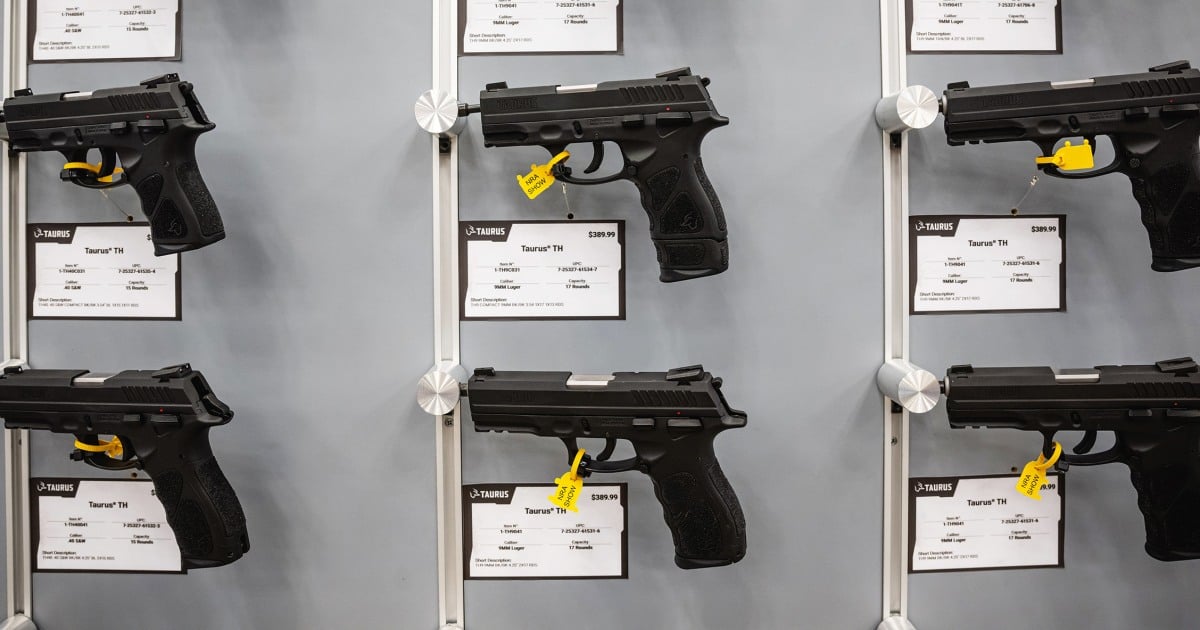The case will test how far the court's conservative majority is willing to go in interpreting the scope of its 2022 ruling that expanded gun rights outside the home.
The Supreme Court on Tuesday indicated it would uphold a federal law that prohibits people under domestic violence restraining orders from owning firearms, potentially limiting the scope of its own major gun rights ruling from last year.
The case gives the court's 6-3 conservative majority a chance to consider the broad ramifications of the 2022 decision, which for the first time found that there is a right to bear arms outside the home under the Constitution's Second Amendment.



I'm an attorney who has represented clients seeking restraining orders and those opposing them. I assure you I'm not.
In my jurisdiction, a filer has to complete an affidavit and appear before a judge. At that point a temporary order can issue for no more than 10 days. That allows time for the Defendant to be served and appear for a two party hearing. After that the temporary order can be extended for up to one year, dissolved, or allowed to expire.
The Defendant will be heard within 10 days. I'm not sure how you'd better balance the competing interests. If an order isn't issued, someone could be seriously harmed or killed.
You're saying that judges are instructed to remove the guns of someone who is determined to be a reasonable threat to harm another or cause serious bodily harm? Fantastic!
How often do you imagine that restraining orders are weaponized, versus the number of times they're issued because of need? Not to mention that affidavits have to be sworn under the pains and penalties of perjury, that can include years in prison.
State population of California is roughly 39 million. State population of Florida is roughly 22 million. That alone covers 18% of the US population.
For California: see California Family Code, Chapter 2, Section 6250, Paragraph (A) here: https://studentaffairs.fresnostate.edu/survivoradvocate/documents/CA Victim Protection Statutes.pdf
Excerpt from the 'requirements' section:
For Florida: see 2023 Florida Statutes, Title XLIII (43) Domestic Relations, Chapter 741, Section 740.30. http://www.leg.state.fl.us/statutes/index.cfm?App_mode=Display_Statute&URL=0700-0799/0741/Sections/0741.30.html
Relevant excerpt describing the requirements and process:
In both states, all it takes is the unsubstantiated claim of the accuser on a sworn petition to 'claim they feel afraid'. Funny that you lead with "I'm an attorney" when the process doesn't even require an attorney in Florida. I'm not going to waste my time looking this up for each and every state, but I'll assert that Florida is not alone on the lack of requirement for an attorney to file the motion. I'll also assert that neither California nor Florida are alone in the fact that neither require any evidence beyond the say-so of the accuser claiming they feel threatened. But since you do claim to be an attorney, I invite you to read those state statutes, tell me I'm wrong, and assert that the process cannot be weaponized by the accuser just to make life a living hell for the accused. When was the last time you even heard of someone suffering any consequences at all for filing a falsified petition for restraining order? I'll bet never. I've witnessed several instances of this happing with zero consequences, not against me, but against friends and family) and even after being proven false later in an actual court proceeding, there were zero consequences for the falsified petition even when the financial and reputational damage caused to the accused was substantial.
If you really are an attorney, you must practice in a jurisdiction with stricter requirements. Lucky you. The topic we are discussing is a national issue, not a local-to-you one, so you must consider the reality that not all jurisdictions are like yours.
Yes, the terms used in those statutes are substantially similar to the terms used in my jurisdiction. I'm not sure what your point is?
What does substantiated mean to you? People are routinely convicted of crimes (beyond a reasonable doubt standard) on testimony and circumstantial evidence alone. Restraining orders are civil and only require a preponderance of the evidence standard.
Attorneys aren't required for any cases (except corporations outside of small claims). Family law, small claims, and restraining orders typically use a simplified structure to allow for easy access by the general public.
Regardless, the issuance of a restraining order still has elements that need to be met, and they need to be proven to a preponderance of the evidence.